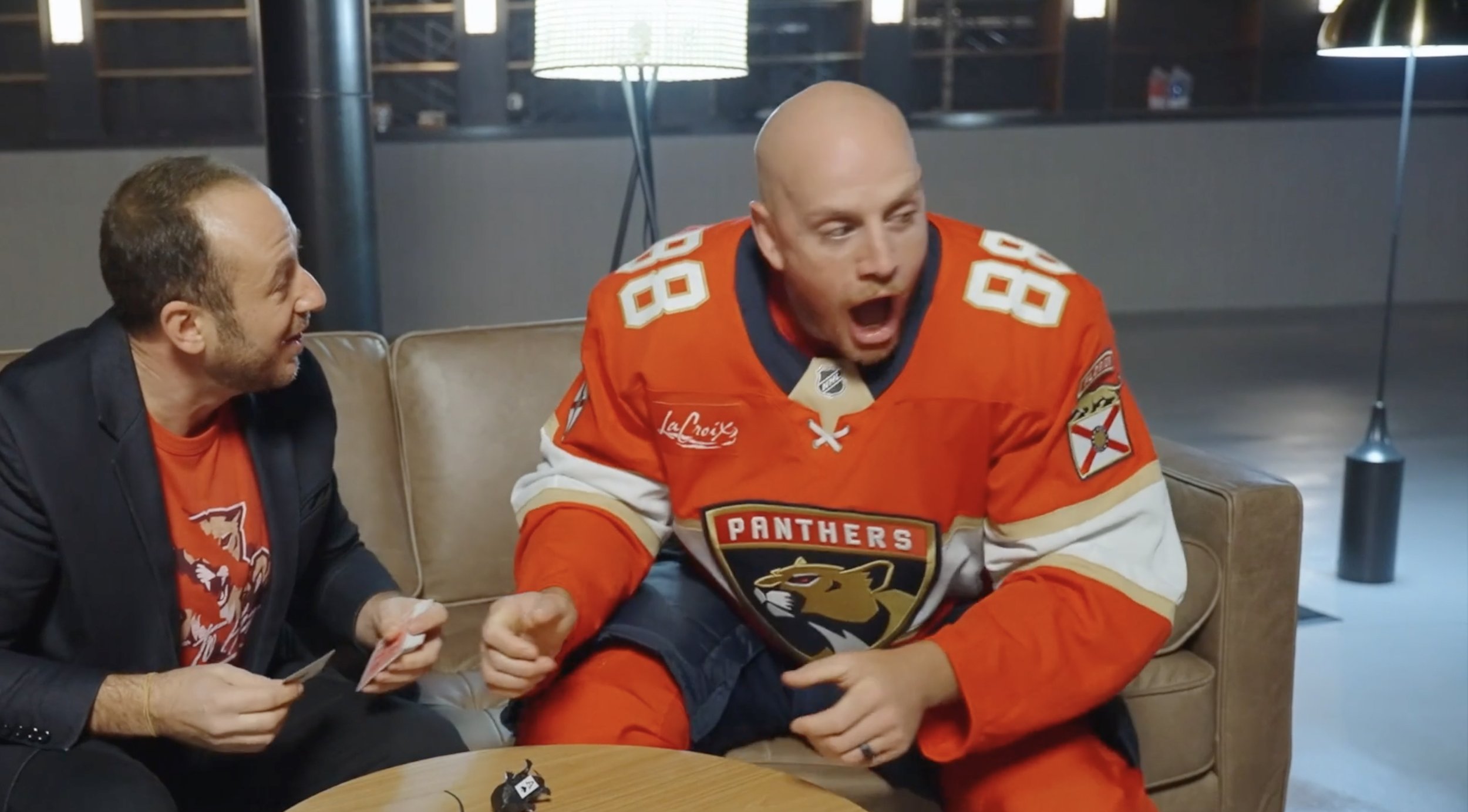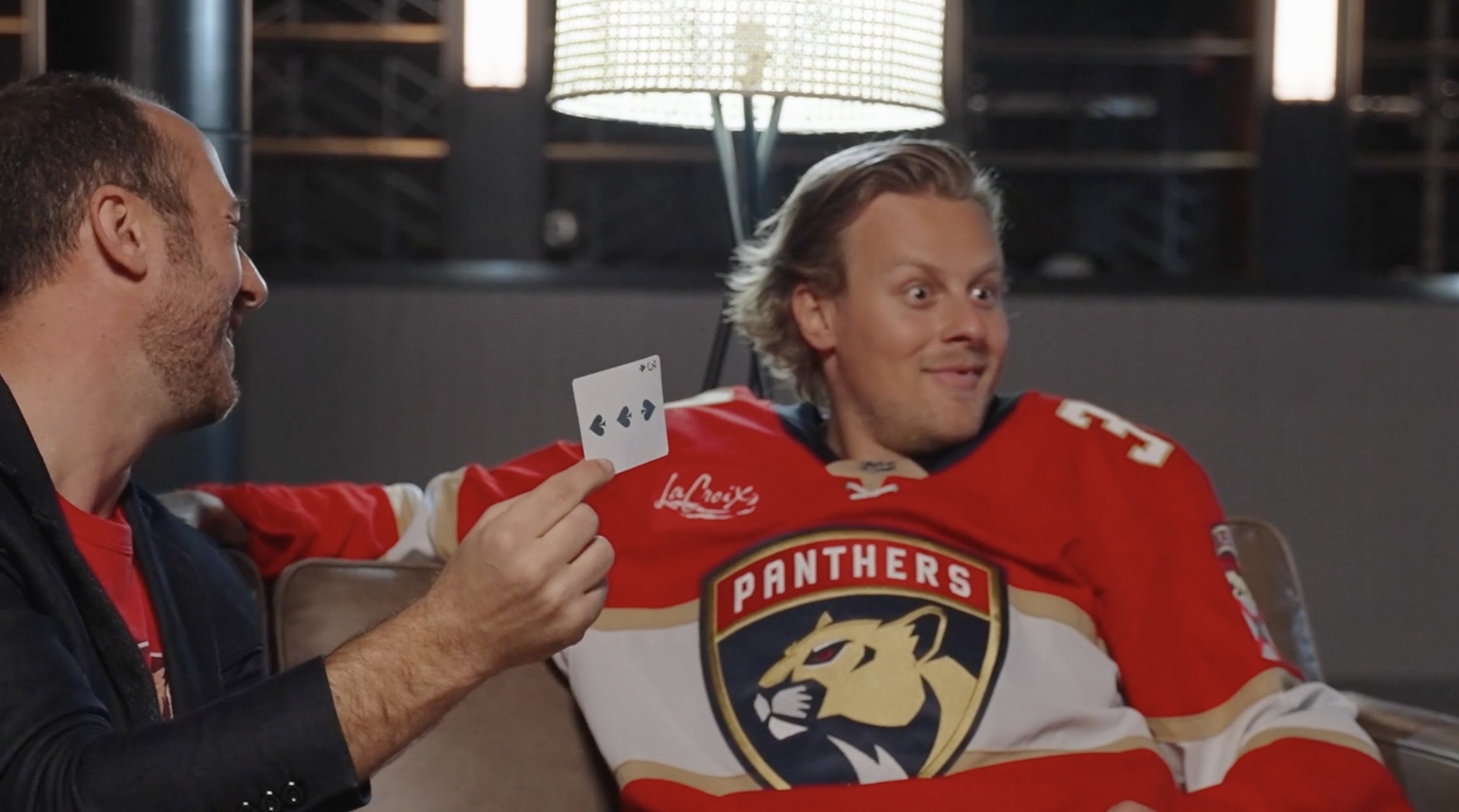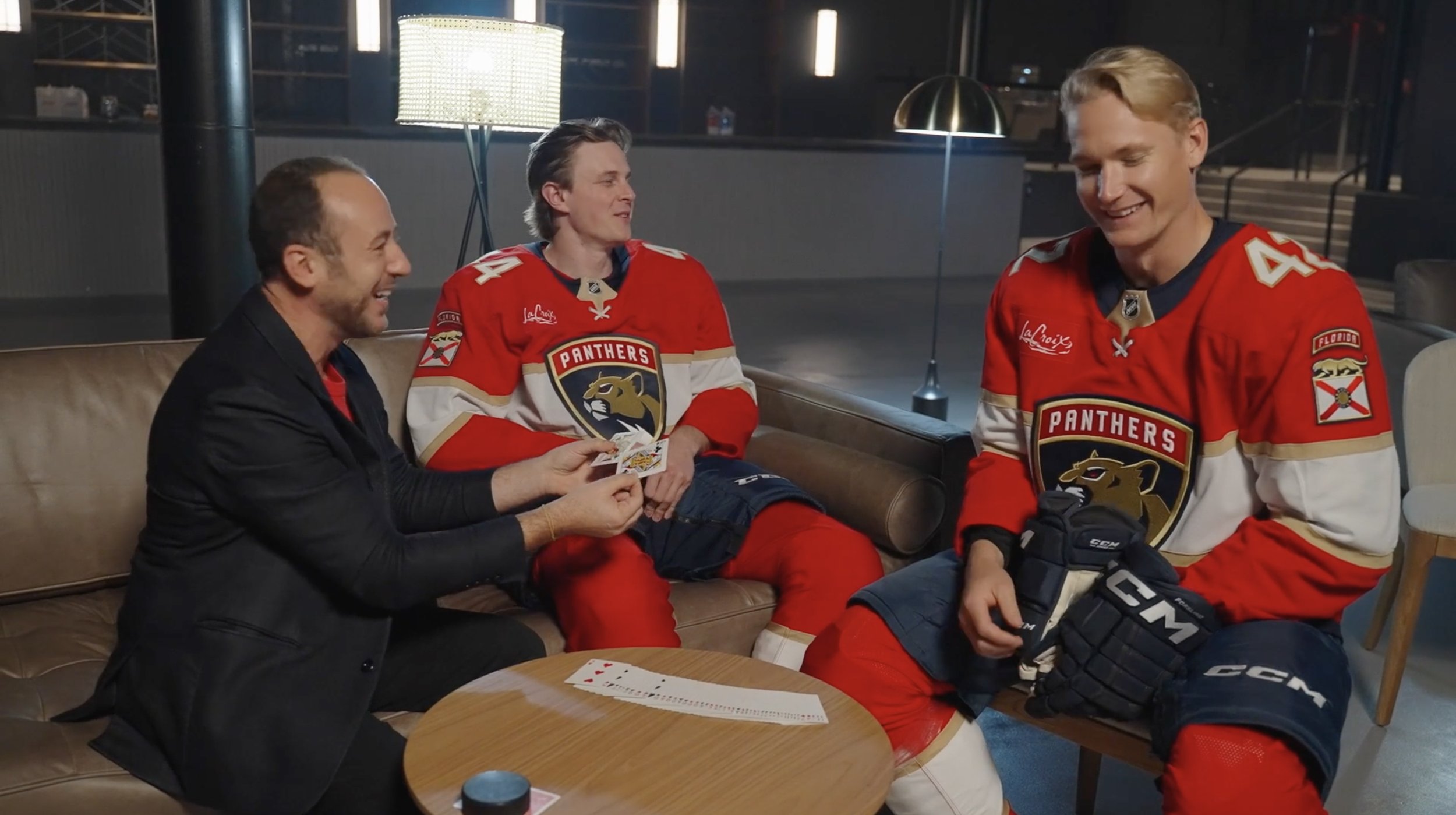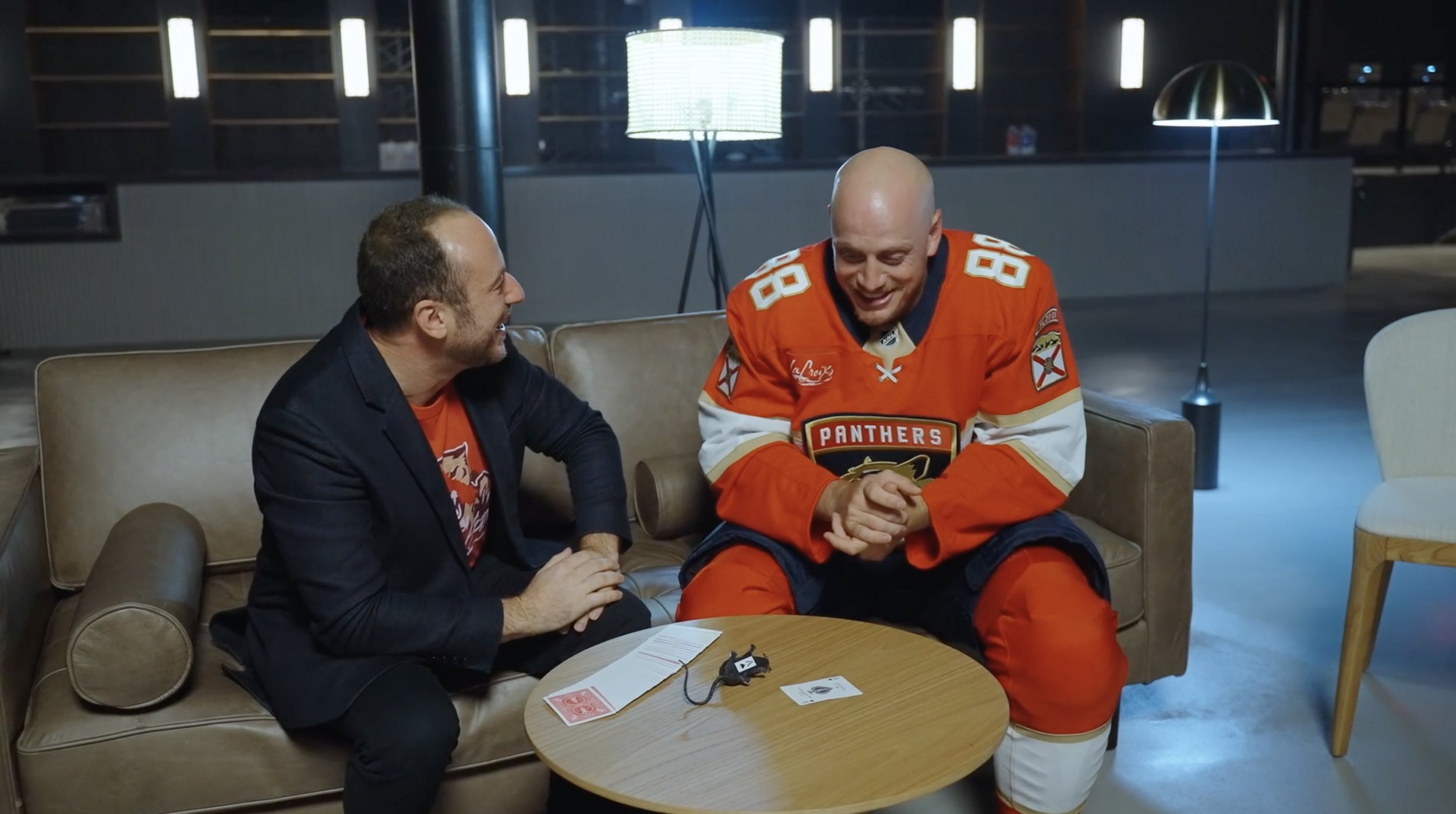Why Pro Athletes Are Obsessed With Magicians (And What CEOs Need To Learn From Both)
Blowing the mind of Jalen Suggs, guard for the Orlando Magic
If you watch ESPN, you’ve probably spotted my friend, Oz Pearlman. He’s the mentalist you’ve seen performing on TV for entire NFL teams. If you’ve seen any of his appearances, you may have noticed how the athletes he performs for lean forward. They focus. And then? They lose their minds.
This magnetic pull between athletes and magic runs deep. I’ve seen it firsthand performing for the Orlando Magic, NCAA teams, and pro athletes across two decades.
Here’s what I think athletes understand: Mastery demands obsession.
They recognize the countless repetitions behind every move. A quarterback who’s thrown 10,000 practice passes sees the dedication in every shuffle of the cards. A point guard who’s perfected their crossover notices the precision in each gesture.
Athletes live in a world of misdirection and psychology. They study micro-expressions, anticipate reactions, read intentions. Magic speaks their language—the language of human behavior and strategic deception.
Performing for Paulo Banchero, power forward for the Orlando Magic
But there’s something even deeper.
Athletes chase moments of pure achievement—breaking through what seems impossible, delivering when everything’s on the line. Magic creates these same peaks. When an athlete watches a miracle happen inches from their face, they’re experiencing the flip side of their own highlight reels.
This explains why my sessions with teams often run long. Athletes get it. They understand the combination of technical excellence and psychological insight required to create genuine moments of astonishment.
Blowing the minds of the Iowa State NCAA Football team.
The best athletes and the best magicians have this in common—real mastery looks nothing like mastery at all. It looks like ease. Like flow. Like something that just happens.
That’s the connection. That's why athletes keep coming back for more.
Because in the end, they recognize another performer who has devoted their life to making the impossible look inevitable.
And that’s a language they speak fluently.




But here's something even more intriguing:
The principles behind magic that I teach offer athletes powerful tools for their own performance. When I teach athletes about controlling attention, they discover new ways to create space on the field. When we explore the psychology of timing, they gain fresh perspectives on reading opponents.
Consider how a basketball player might use the principles of misdirection to create better passing lanes. Or how a quarterback could apply the psychology of expectation to manipulate defensive coverage.
Athletes who understand these concepts gain subtle but significant advantages. They learn to control not just their movements, but the attention of everyone watching them.
Orlando Magic players, Goga Bitadze and Cole Anthony, enjoy some close-up magic.
The best part? These principles scale across any competitive environment. Whether you’re making a three-pointer or closing a business deal, understanding how to guide attention and manage expectations changes the game.
This might be magic’s most valuable gift to athletes: showing them that peak performance goes beyond physical excellence.
The true masters shape reality itself.
Ready to create extraordinary experiences in your organization? Let’s explore bringing these principles to your next event. Contact my booking team here.



